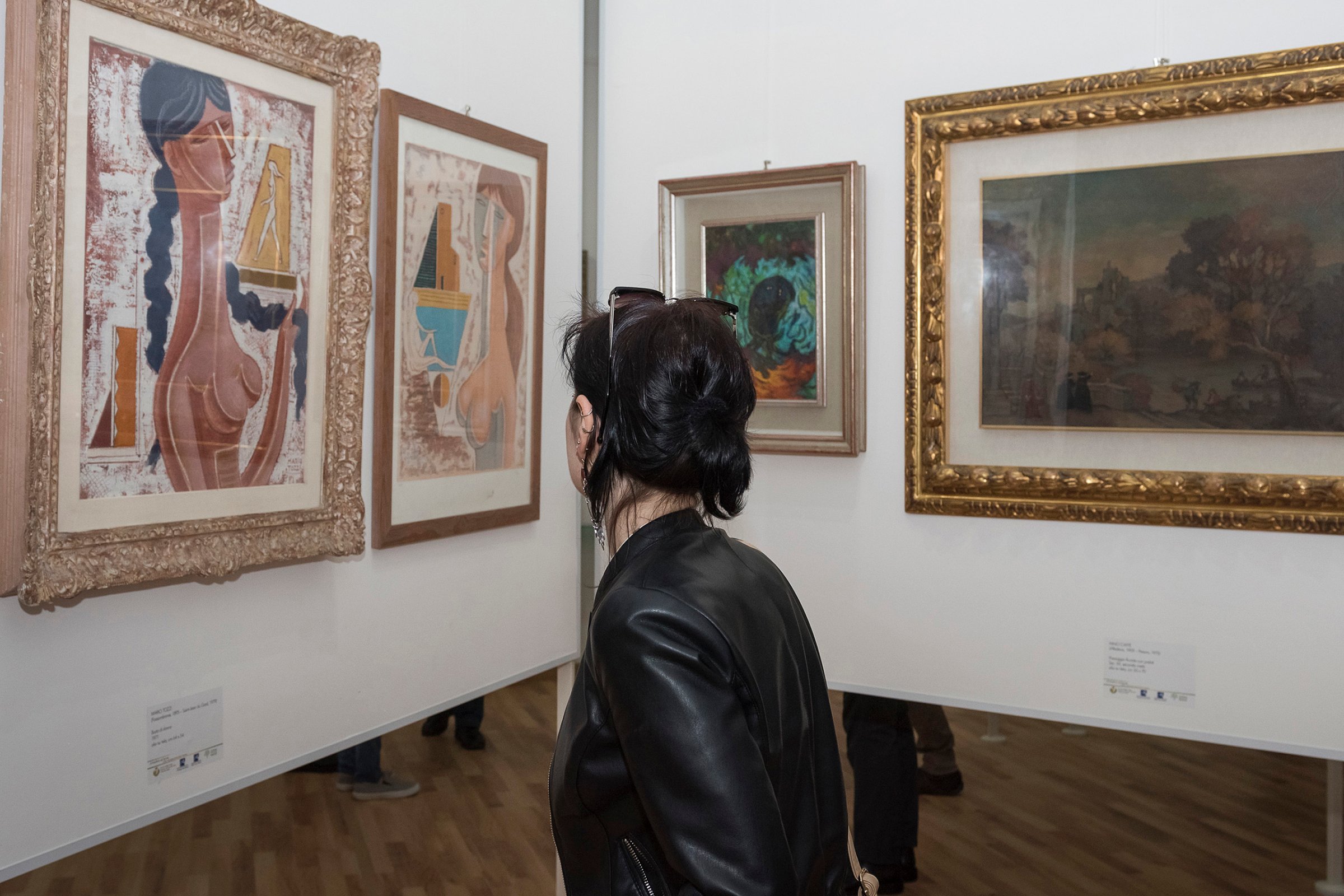
In his personal life, Gioacchino Campolo was renowned for extortion and usury but in private he was an avid art collector. It is not clear if he ever intended his collection to be viewed by the public, but that decision was taken from him when Italian authorities seized his assets, worth more than $400 million.
Campolo’s art collection was among his assets, and four years later, it has gone on display at the Palace of Culture in the southern Italian city of Reggio Calabria.
It includes works by Raphael, Dali and one by Lucio Fontana, the father of the Spatialism movement, valued at more than $1.67 million
“The collection was amassed with money which was stolen from the people. We are giving back to the people that which was taken,” says Eduardo Lamberti-Castronuovo, the local councillor for heritage.
Campolo amassed his fortune by supplying gambling machines and other activities. His assets were seized after he was found guilty of criminal association, usury and extortion in 2011. and sentenced to 16 years of house arrest. Police said he was also believed to be associated with the Calabrian mafia, the ‘Ndrangheta.
Antonella Aricò, a guide at the museum, says the art works which were found in Campolo’s kitchen, bathroom and under his bed, served a dual purpose in the criminal’s mind, “To recycle the dirty money and affirm his social status. He thought that in buying these works, he would become noble and raise his social status,” she says.
Campolo sent his associates to auctions and galleries to build his collection, with each of the 125 art works coming with a certificate of authenticity. But numerous times he was tricked, including the occasion he believed he had purchased Pablo Picasso’s “Jacqueline in Black Hat.” The original instead hangs in New York’s MoMA, while a “not authentic” note is marked below the copy in Reggio.
Within the collection there are 85 proven originals, while some have been marked as fakes and others are still to be studied.
Lamberti-Castronuovo says a mobster being duped is a powerful way to show young people criminals are not as tough as they appear. “This man, who was considered a kind of king, a powerful man, in effect was not powerful, because he was also cheated. In fact this ‘king’ has been titled, ‘the cheated cheat’,” he remarks.
The councillor also hopes the museum will show young Calabrians that the riches earnedd by crime are easily confiscated: “It’s as if we are saying to young people, ‘Look, if you steal, if you are a mobster, sooner or later the state will come and take away everything you’ve amassed.’ This is a great lesson,” he said.
Since opening in May up to 1,000 people a day have visited the Palace of Culture. In addition to the seized artworks, the building also displays paintings by local artists, a series of mosaics made by prisoners and a museum of religious artefacts.
The transformation of the palazzo —which was built in the 1930s as the city’s orphanage —was funded by the province and supported by volunteers who cleaned the building and hung the pictures.
Around 10 museum guides now work daily for free. Lamberti-Castronuovo says he is trying to get funding to pay the multilingual guides. “It doesn’t make sense for this art gallery to exist if there isn’t someone to explain. If you go there and see the art works and you don’t know what it’s about, then it’s not a cultural exchange, it’s just curiosity,” he says.
Finances aside, guide Antonella Lanteri says the museum is proving a success among locals. “They’re coming and contemplating, because something is finally happening here,” says Lanteri, who emigrated from Australia to Calabria 24 years ago. “When we read in the newspapers and we see on the telly that there has been a confiscation they are really happy. They are trying to destroy organized crime and this is a very strong symbol.”
More Must-Reads from TIME
- How Donald Trump Won
- The Best Inventions of 2024
- Why Sleep Is the Key to Living Longer
- Robert Zemeckis Just Wants to Move You
- How to Break 8 Toxic Communication Habits
- Nicola Coughlan Bet on Herself—And Won
- Why Vinegar Is So Good for You
- Meet TIME's Newest Class of Next Generation Leaders
Contact us at letters@time.com